This blog was written before Pardot was renamed to Marketing Cloud Account Engagement. You can read more about the name change and what it means here.
A common question we hear from clients is: Should I use Salesforce Marketing Cloud or Pardot?’. This might seem strange because, generally, Pardot is accepted as the B2B solution, and Salesforce Marketing Cloud is the B2C platform.
The assumption is that a single business would choose one of these two options, based on their business setup and their target audience.
Our answer, however, is that depending on your core marketing channels, for any business, it can actually be very effective to use both!
Hear me out. Pardot is amazing for automated email marketing, capturing prospects with forms and landing pages, and tracking engagement via Scoring Categories then Grading prospects. It’s also got the very best integration with Salesforce.
Yet sometimes marketers need an extra channel in order to strategically retarget an account or to re-engage with a group of prospects that may have gone cold, outside of email communication.
This is where Marketing Cloud comes in with its Advertising Studio module. Here, you can lean on the Salesforce architecture to create a seamless experience for your audience.
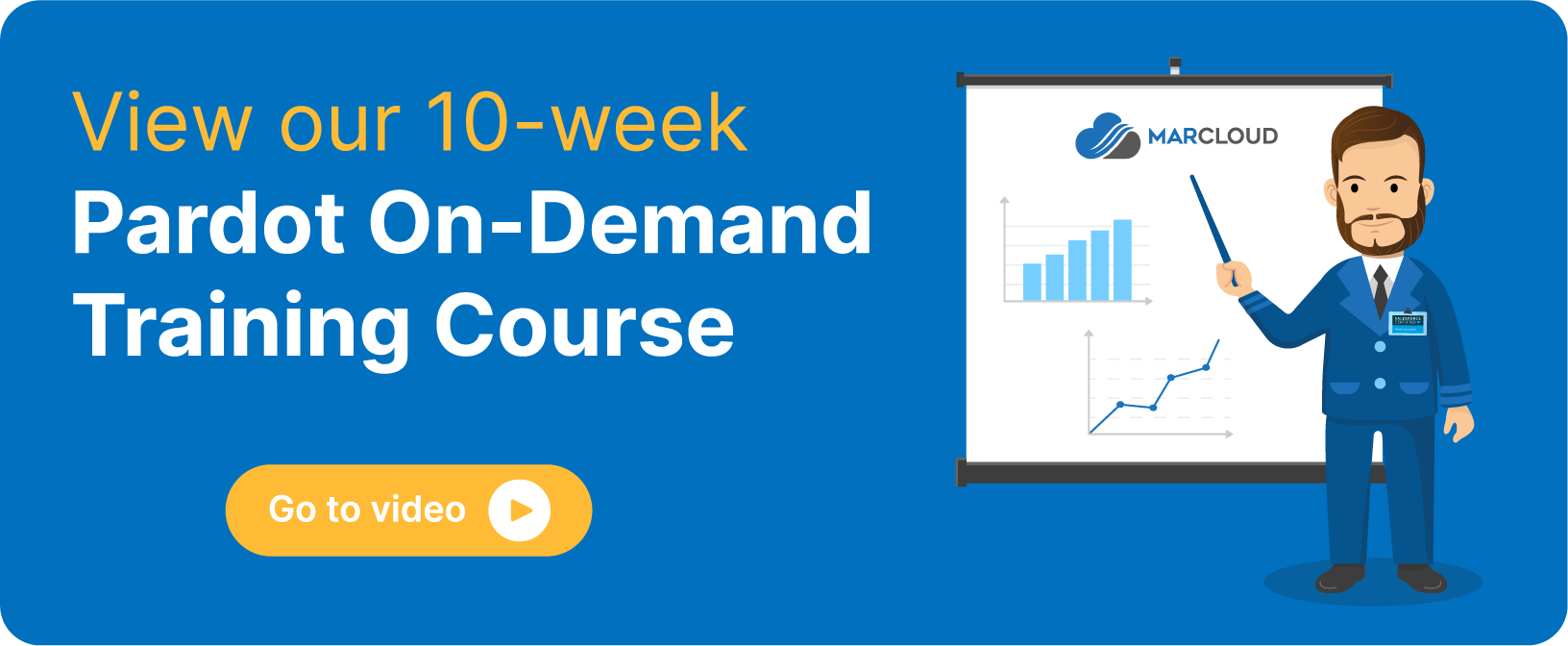
See the screenshot below which illustrates the system architecture you could adopt with Pardot being your data entry and automated email marketing, Sales Cloud acting as the CRM and database of record, then Marketing Cloud Connect as the method of triggering ads to target specific people in this database.
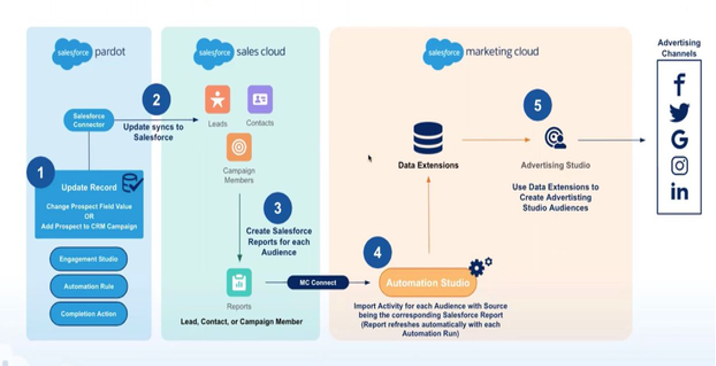
As you can see, the activity starts in Pardot when a record is created or updated. From here, a prospect can be entered into a Pardot Engagement Studio, trigger an Automation Rule, or a Completion Action.
With the correct Sales Cloud integration, the contact record update will also sync to the CRM and then create or update a particular Salesforce Report for an Audience.
The Marketing Cloud Connector then allows this activity to trigger an automation in the Marketing Cloud Automation Studio which imports the contact record into a Data Extension. This Data Extension is the source for an Audience set up in Advertising Studio. From here, advertising campaigns launch across digital channels such as Facebook, Google, and LinkedIn.
It’s just a single example of the way that the Salesforce suite of marketing products integrate so well!
Of course, from a user perspective, the look and feel of each of these platforms is also extremely familiar, which helps teams to create more sophisticated journeys and not be limited by one single platform.
When is it suitable to use both platforms?
Tapping into both Salesforce Marketing Cloud and Pardot for marketing is best suited to businesses that:
- use Sales Cloud as their chosen CRM.
- run, or want to run, regular digital advertising campaigns to target known prospects.
- are very active on their social media accounts.
- have the marketing budget to invest in all three Salesforce solutions.
The pricing structure of Marketing Cloud, which works by building a plan based on the Studios (features) you want access to, means businesses don’t pay a set premium for access to all the studios that are available.
I’ve used Advertising Studio in this blog to showcase how Pardot and Marketing Cloud can work together, however, there are other studios that marketers can utilise to run sophisticated, end-to-end marketing campaigns.
Other studios within Marketing Cloud
Social Studio
Designed to assist marketers with social media management, there’s a great listening function in this tool that means we can engage with prospects in Marketing Cloud, update a field in Salesforce, and create lists in Pardot. This can help us to work out who our brand evangelists are!
Interaction Studio
This is an extremely powerful tool in Marketing Cloud that can tailor digital experiences in real-time. Pardot can drive traffic to your website, whilst Marketing Cloud personalises the content based on real-time interactions.
Intrigued?
Consider using Salesforce Marketing Cloud and Pardot hand-in-hand for a truly multi-channel automated marketing approach.
Myself and the MarCloud team are on-hand to help with any of the Salesforce architecture setup and integration or to work as an extension of your team and support with Marketing Cloud strategy that will prove effective in the long-term. Get in touch to find out more.
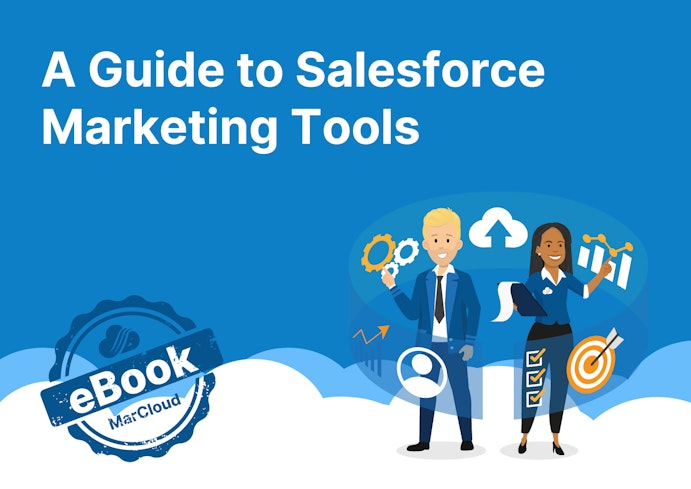

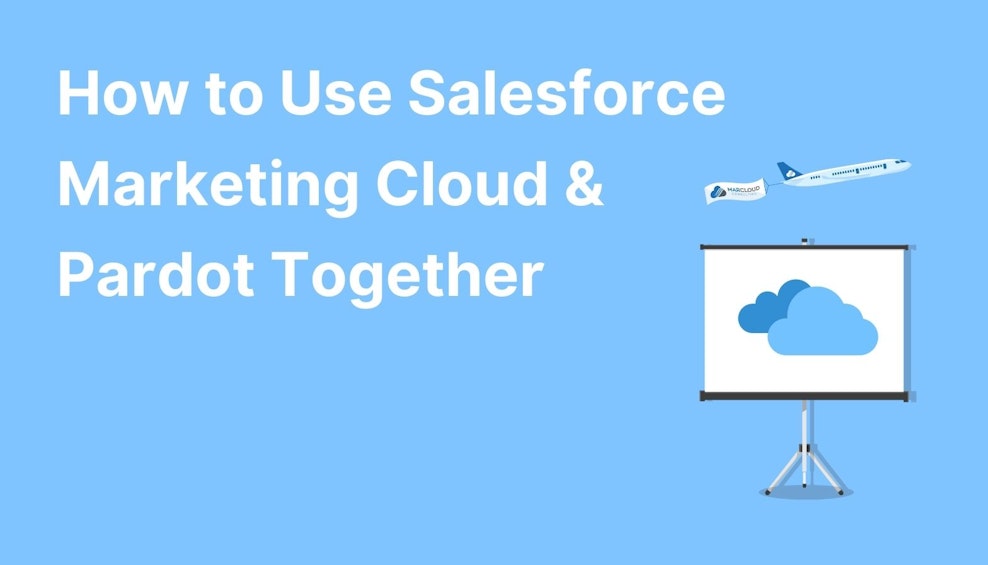




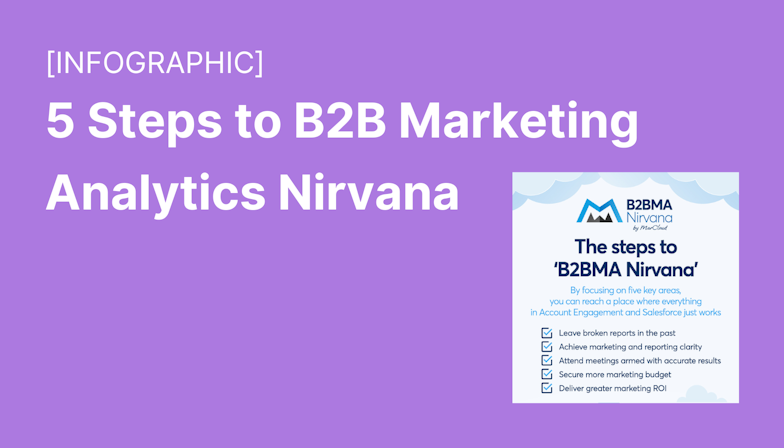

![Coloured background with text New Guide to Salesforce Marketing GPT [eBook]](https://www.datocms-assets.com/103555/1721624386-guide-salesforce-marketing-gpt-ebook-blog.png?auto=format&dpr=0.5&w=1568)